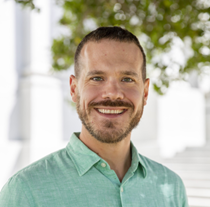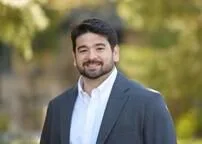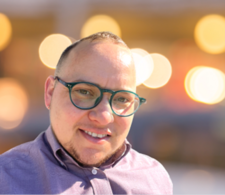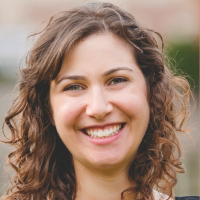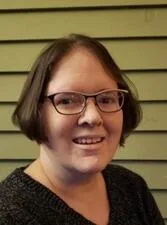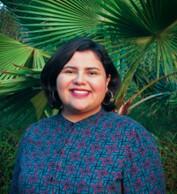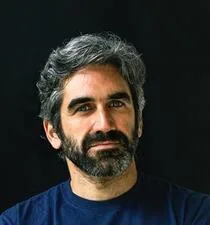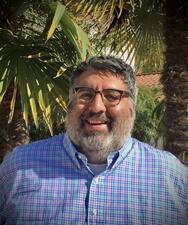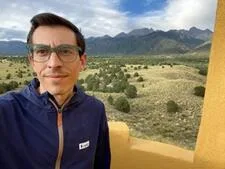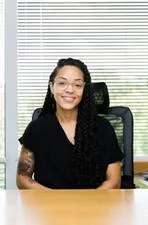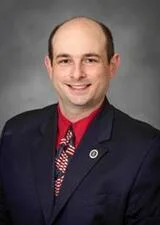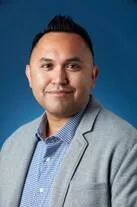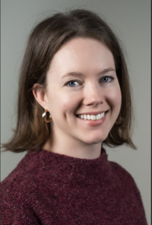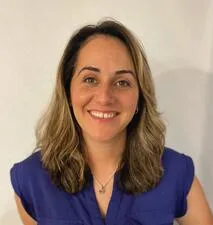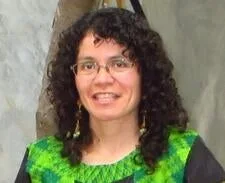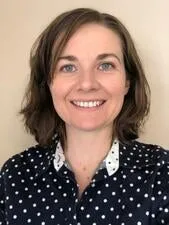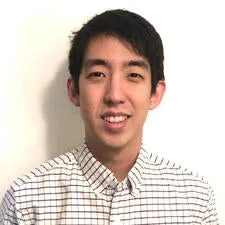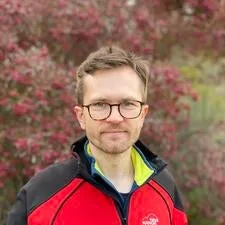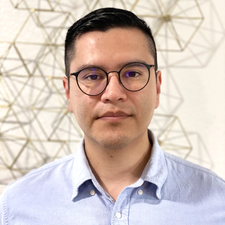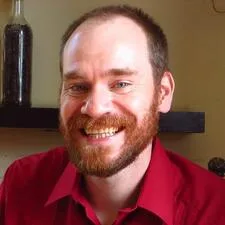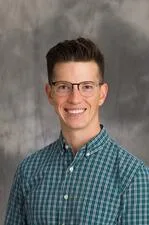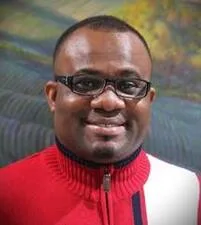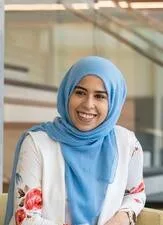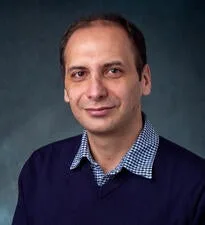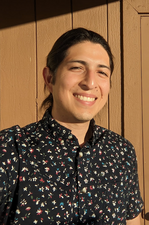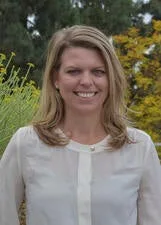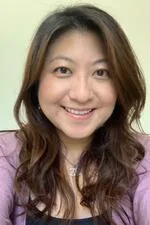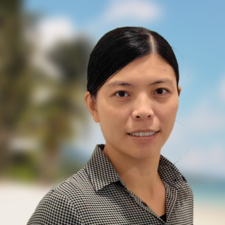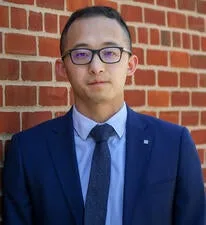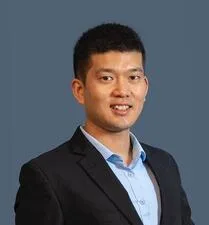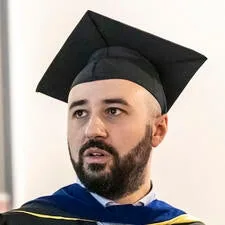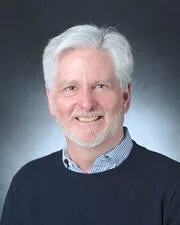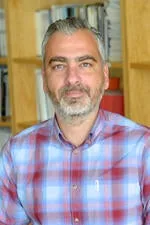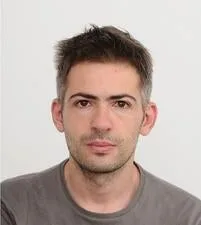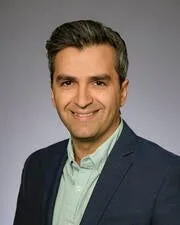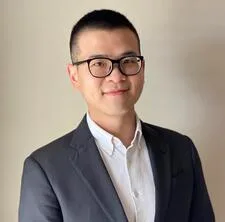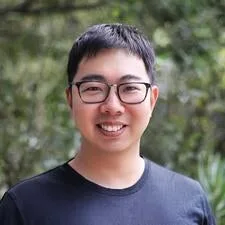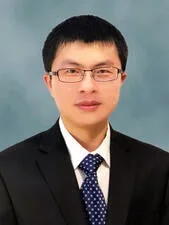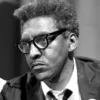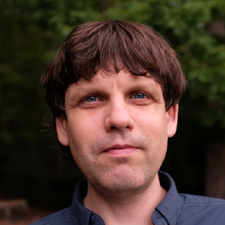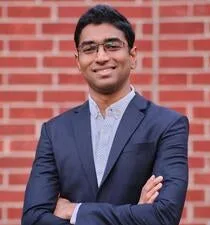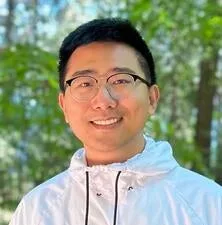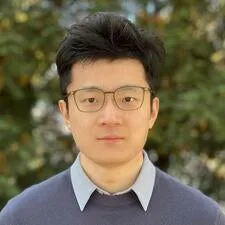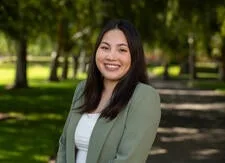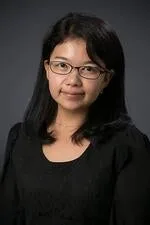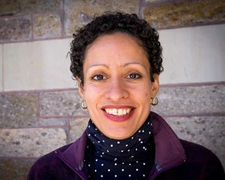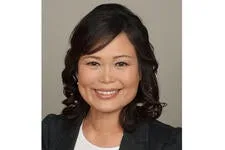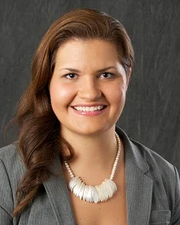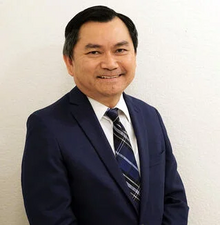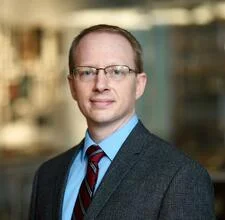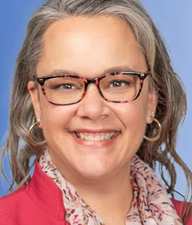UC Riverside welcomed 52 new permanent faculty members for the 2023-2024 academic year who come from a variety of disciplines and research interests.
The new faculty members offer expertise on a wide range of subjects, from American politics to robot artificial intelligence to plant biochemistry. They include researchers from several top universities, a former Silicon Valley executive, and a former production designer for the “Real Housewives” reality series. Their research tackles issues ranging from the impact of aging on neurological diseases to designing new recyclable platforms for polymeric materials.
Learn more about the new faculty below:
College of Humanities, Arts, and Social Sciences
Ian Ballard, an assistant professor of psychology, received his doctorate in neurosciences from Stanford University. A psychologist and cognitive neuroscientist, Ballard’s lab studies adaptive decision-making using behavioral experiments, brain imaging, causal brain perturbations, and computational modeling. His long-term research goal is to develop strategies and treatments for reducing maladaptive decision-making in both healthy individuals and in people living with neuropsychiatric disorders.
Christopher Seiji Berardino, an assistant professor of English, received his doctorate in English literature and an MFA in fiction from Cornell University. His monograph-in-progress, “Multitude Modernism: ‘Democratic Epiphany’ in Asian American and African American Interwar Literature,” maps the ways in which modernists of color leverage textual experimentation to express collective potentiality and interracial solidarity. A UCR Chancellor’s Postdoctoral Fellow in 2021, Berardino is also a creative writer who has been published in numerous literary magazines. His short story, “Dog Bait,” is the winner of the Breakwater Review’s 2021 Fiction Contest.
Jack Cáraves, an assistant professor of gender and sexuality studies, received his doctorate in Chicana/o and Central American Studies from UCLA. As an interdisciplinary trans feminist activist scholar, Cáraves specializes in Latinx gender and sexuality studies. His current research examines the role of gender variance, trans embodiment, and sexuality in shaping migration, family dynamics, identity formation, spirituality, and world-making for transgender Latinxs in Los Angeles. He is working on his first book, “Trans Power: Illegality, Identity Formation, and Spirituality in Trans Latinx Lives.”
Halle Dimsdale-Zucker, an assistant professor of psychology, received her doctorate in cognitive neuroscience at UC Davis. Her research focuses on understanding human memory, particularly in how context influences what people remember and how those memories are represented by the brain. Her lab uses techniques including behavioral testing of healthy younger and older adults, computational approaches such as Hidden Markov Models, and brain-imaging techniques.
Laura Evans, an associate professor of political science, earned her doctorate in political science at the University of Michigan. She was previously an associate professor in the Evans School of Public Policy and Governance at the University of Washington. Evans studies race and politics, Indigenous politics, federalism, and political institutions in the U.S. The work addresses both historic and continuing obstacles to Native American tribal governments’ exercise of sovereignty and self-determination. Her scholarship has addressed topics such as tribal governments’ relations with federal, state, and local governments; Native American political attitudes; and comparative Indigenous politics.
Magda García, an assistant professor of English, received her doctorate in Chicana and Chicano Studies at UC Santa Barbara. Her dissertation on affect theory, Chicanx/Latinx literary and cultural studies was supported by a Ford Foundation Dissertation Fellowship and she is a 2021-23 UC President’s Postdoctoral Fellow. Her book manuscript is titled “Claiming La Bruja: Rage, the Speculative, and Contemporary Border Tejanx Feminist Affects.” Originally from the Rio Grande Valley of South Texas, she has contributed to the “The South Texas Experience Zine Project” and “South Texas Experience: Love Letters” and co-edited “Transmovimientos: Latinx Queer Migrations, Bodies, and Spaces.”
Christophe Katrib, an assistant professor of teaching in the Department of Theatre, Film and Digital Production, earned his MFA in photographic and electronic media from the Maryland Institute College of Art in Baltimore. A former Fulbright scholar, Katrib is an artist, filmmaker and educator who has worked professionally in film production and photography for two decades. He has worked with 16 mm film, video installation, photography, and sound.
Roberto Macias, Jr., an acting assistant professor of English, is completing his dissertation at UC Santa Barbara, where he is a Humanities and Fine Arts Dean’s Prize Teaching Fellow and a Ford Foundation Dissertation Fellow. His research areas include Latinx literature and cultural theory, Critical Gender and Sexuality Studies, and 20th century Continental Philosophy. He is currently co-curating a double-dossier on global Latinidades for “Aztlán: A Journal of Chicana/o Studies.”
John Marquez, an assistant professor of history, earned his doctorate from the University of Illinois, Urbana-Champaign. Before joining UCR, he was an assistant professor at Colorado College and a Chancellor’s ADVANCE Postdoctoral Fellow at UC Irvine. Marquez is a historian of colonial Latin America and the Atlantic world, with a focus on slavery and freedom in Brazil. His book, tentatively titled “Freedom on Three Coasts: Slavery, Law, and Belonging in the South Atlantic World,” centers on the experiences of Africans and their descendants in the early modern period, particularly in the realms of law, knowledge, and kinship.
Desireé Melonas, an assistant professor in political science and Black study, received her doctorate from Temple University. She was previously at Birmingham-Southern College, where she was an assistant professor of political science and founded and served as coordinator for a Black Studies program. Her research interests focus on Black political thought, critical geography, new materialism, and Black feminist thought. She is working on her book “Place in Black: Moving Racial Geographies.” Melonas is a co-principal investigator on a National Academies of Sciences, Engineering, and Medicine grant to assist in developing environmental justice-focused, service-learning curricular interventions in an Africatown, Ala., middle school.
David Miller, an assistant professor of political science, received his doctorate from Washington University in St. Louis. Miller served as an assistant professor at East Tennessee State University and a postdoctoral research scholar at Vanderbilt University’s Center for the Study of Democratic Institutions. His research centers on American political institutions with a focus on the presidency, interest groups, and legislative politics. His work uses quantitative approaches to address substantive issues including representation and inequality in political voice. Miller is currently working on a book project, based on his award-winning dissertation, that examines how presidents engage with interest groups.
Christopher Scott Murillo, an assistant professor of teaching in the Department of Theatre, Film and Digital Production, holds an MFA from UC San Diego. Murillo is a scenic designer, artist, and educator whose work as a set designer for theatre has been seen at IAMA Theatre Company, Rubicon Theatre Company, Sierra Rep, Native Voices, New Village Arts Theatre, and the Getty Villa. He’s also worked as television production designer on shows including “The Ready Room with Wil Wheaton,” “Halo the Series: Declassified,” and reunion specials for the “Real Housewives” series.
Nicholas Napolio, an assistant professor of political science, received his doctorate from the University of Southern California. His research focuses on American political institutions, specifically Congress, the bureaucracy, and separation of powers. He has been published in the American Political Science Review, American Politics Research, Journal of Policy History, Journal of Historical Political Economy, and other journals. He was born and raised in San Francisco.
Hayden Schill, an assistant professor of teaching in the Department of Psychology, received her doctorate in experimental psychology from UC San Diego. She investigated visual perception and memory in both basic and applied domains. Schill served as the 2022-2023 president of the University of California Graduate & Professional Council, which represents UC graduate students to the UC president, UC Regents, and state and federal governments.
College of Natural and Agricultural Sciences
Selene Bobadilla, an assistant professor of teaching in the Department of Biochemistry and Molecular Biology, earned her doctorate in biochemistry and molecular biology at UCR. She has taught molecular biology lecture and lab for five years at Chapman University and was involved in student mentoring. Her research interests include effective course design that promotes active learning, student networking, community building, inclusivity, and a sense of belonging.
Elisa Cabrera-Guzmán, an assistant professor of teaching in the Department of Evolution, Ecology and Organismal Biology, received her doctorate at the School of Biological Sciences at the University of Sydney, Australia. She has studied the effect of invasive species on native animal species, biological interactions such as competition, predation, and parasitism, ecology of freshwater environments, and effects of habitat fragmentation on communities and populations in the rainforest. Cabrera-Guzmán has primarily worked with amphibians and reptiles, but she has studied invertebrates and other groups of vertebrates as well. Her research has integrated observational and experimental work across a variety of environments in Mexico, Australia, Spain, and the U.S.
Bodil Cass, an assistant professor in the Department of Entomology, received her doctorate in entomology and insect science from the University of Arizona. Her focus is on integrated pest management of subtropical fruits. She leads research and extension efforts to improve the sustainability of citrus, avocado, and other specialty fruit crop production in California through better management of arthropod pests and vectors of plant pathogens. Her research approach employs a mix of ecoinformatics, and traditional field ecology and laboratory experiments, working directly with growers and pest-control advisors.
Andrew Joe, an assistant professor in the Department of Physics and Astronomy, received his doctorate in physics from Harvard University. Joe’s work focuses on using unique optical and optoelectronic techniques to study novel electronic and excitonic states in 2D materials. At UCR, he plans to use these techniques to study the underlying physics behind new types of 2D material heterostructures and develop the next generation of optoelectronic quantum devices.
Adam Jozwiak, an assistant professor in the Department of Botany and Plant Sciences, received his doctorate in plant biochemistry from the Institute of Biochemistry and Biophysics at the Polish Academy of Sciences in Poland. His work focuses on studying the complex chemistry of plants and their metabolites, trying to understand the multifunctional enzymes that modify the structure of these molecules such as through hydroxylations, oxidations, glycosylations, and acylations. Through his research, he aims to unlock the potential of these natural products for biotechnological and agricultural applications.
Alfonso Landeros, an assistant professor in the Department of Statistics, earned his doctorate in biomathematics at UCLA. Drawing inspiration from mathematical optimization, computing, and applied mathematics in general, his research seeks to expand the reach of statistical methods to the scale of modern data sets. Landeros is broadly interested in scientific applications that include cancer, immunology, and genomics.
Daniel Moen, an assistant professor with the Department of Evolution, Ecology, and Organismal Biology, received his doctorate in ecology and evolution from Stony Brook University. Prior to UCR, Moen was an associate professor at Oklahoma State University. Moen’s research focuses on the evolution of morphological diversity and biomechanical systems, primarily in anurans (frogs and toads). His research answers questions about evolution at or above the species level by using phylogenetic comparative analyses and statistical modeling.
William Neary, an assistant professor of organic chemistry, received his doctorate in organic chemistry at Florida State University. Before joining UCR, he was a postdoctoral associate at the University of Illinois at Urbana-Champaign. His research interests are in the areas of polymer chemistry, organic chemistry, and organometallic chemistry. Research in his group will aim to solve grand challenges in society by focusing on the design of new recyclable platforms for polymeric materials and the metathesis polymerization of nonconventional substrates.
Olakunle Olawole, an assistant professor in the Department of Microbiology and Plant Pathology, received his doctorate at Iowa State University in Ames, Iowa. Before joining UCR, he was a postdoctoral research associate at Texas A&M University, College Station, Texas. Olawole’s expertise has primarily been with phytopathogenic bacteria, and particularly those causing vascular wilts in both vegetable crops and trees. He is interested in understanding the genetics, genomics, and physiology of their interactions with plants and insect vectors.
Sarah Radi, an assistant professor of teaching in the Department of Biochemistry, received her doctorate in biochemistry and molecular biology from UCR. Her dissertation focused on intermittent fasting and the keto diet’s effects on liver specific gene expression. She is interested in developing and implementing active learning techniques and manipulating examination techniques to aid in student success.
Maziar Raissi, an assistant professor of applied mathematics, received his doctorate in applied mathematics and statistics and scientific computations from the University of Maryland, College Park. He worked at NVIDIA in Silicon Valley as a senior software engineer before joining the University of Colardo, Boulder, as an assistant professor of applied mathematics. His expertise lies at the intersection of probabilistic machine learning, deep learning, and data driven scientific computing. He has been involved in the design of learning machines that leverage the underlying physical laws and/or governing equations to extract patterns from high-dimensional data generated from experiments.
Jose Sanchez Gomez, an assistant professor in the Department of Statistics, received his doctorate at the University of North Carolina at Chapel Hill. His research interest is in high-dimensional data modeling and inference. He has developed statistical methods for the detection of structure in large graphical models and the testing of variable relationship networks. Sanchez Gomez has participated in consulting projects with professionals from a variety of disciplines, such as marine science, public policy, information technology, and journalism.
Shana Welles, an assistant professor of teaching in the Department of Evolution, Ecology, and Organismal Biology, received her doctorate in plant biology at UCR. She previously completed a grand challenges initiative postdoctoral fellowship at Chapman University and spent two years as an academic coordinator at UCR. Her research interests include exploring ways to increase student engagement and success and expanding opportunities for course-based research experience.
Jiue-in Yang, an assistant professor in the Department of Nematology, earned her doctorate in microbiology and plant pathology at UCR. She worked as an assistant research specialist at UCR’s Department of Botany and Plant Sciences and later established her own lab at the National Taiwan University in Taiwan, where she advanced to associate professor. Yang is the recipient of the Ta-You Wu Memorial Award in Taiwan and represented Taiwan to compete in the 2023 APEC ASPIRE Award. She is interested in microbe-plant nematode interactions and plant nematode adaptation. Her lab will study biological control mechanisms, nematode-suppressive soils, and the physiological reactions of plant nematodes under environmental stress.
Huimin Zhang, an assistant professor of immunology in the Department of Molecular, Cell, and Systems Biology, earned her doctorate in biochemistry from UCLA. She completed postdoctoral fellowships at The Scripps Research Institute and Stanford University, revealing how aging shapes the epigenetic landscape of human T cells. Zhang’s group seeks to understand how immune homeostasis is maintained and the impact of aging on the immune system. They study the fundamental principles governing the communication between the key players of the immune system, and how the immune system adapts to various environment challenges such as aging.
Marlan and Rosemary Bourns College of Engineering
Mingyu Cai, an assistant professor of mechanical engineering, earned his doctorate in mechanical engineering from the University of Iowa. His research on autonomous and intelligent robots focuses on the autonomy interface between formal methods, machine learning, control theory, and optimization in addition to application visual navigation, dexterous manipulation, and interpretable human-robot interactions. Cai’s ultimate goal is to build explainable and trustworthy intelligence of autonomy as they interpretably perceive and reason about the physical world, and safely interact and collaborate with humans. Cai will begin teaching in spring 2024.
Juhong Chen, an assistant professor of bioengineering, earned his doctorate in food science from the University of Massachusetts. His research focuses on the development and application of technologies such as nanomaterials, bacteriophage, CRISPR, microfluidics, and artificial intelligence to develop biosensors for the detection of biological and chemical contaminants—including pathogens, viruses, allergens, toxins, pesticides, and heavy metals—in food and agricultural systems. Chen previously served as assistant professor of biological systems engineering at Virginia Tech. Chen will begin teaching in spring 2024.
Emiliano De Cristofaro, a professor of computer science and engineering, earned his doctorate in networked systems from UC Irvine. His research is centered on information security, with his most recent work based on trustworthy machine learning as well as understanding and countering socio-technical issues on the web. De Cristofaro served as director of the Academic Center of Excellence in Cybersecurity Research and as head of information security research, both at the University College London. He was also a former research scientist at the Xerox Palo Alto Research Center.
Trent Jaeger, a professor of computer science and engineering, earned his doctorate in computer science and engineering from the University of Michigan. His research interests are computer and network security, particularly improving the security of operating systems and software in general. Jaeger previously served as a professor at Penn State’s Computer Science and Engineering Department and co-director of its Systems and Internet Infrastructure Security Lab. He is the consortium lead for the Army Research Lab’s Cyber Security Collaborative Research Alliance, a joint government-industry-academia research project. While working at IBM Research, Jaeger provided guidance on IBM’s security plans for Linux. He will begin teaching in spring 2024.
Georgios Karavalakis, a professor in chemical and environmental engineering, earned his doctorate in chemical engineering at the National Technical University of Athens. He previously served for nearly 13 years a research faculty member at UCR’s Center for Environmental Research and Technology (CE-CERT). His research focuses on studying the impacts of low- and zero-carbon fuels on the emissions and secondary aerosol formation from mobile sources. His current research interests lie in developing a better understanding of the physical and chemical properties of non-exhaust emissions.
Ioannis Karamouzas, an associate professor of computer science and engineering, earned his doctorate in computer science at Utrecht University. His research revolves around robotics, artificial intelligence, and computer graphics, focusing primarily on the development of motion-planning algorithms for autonomous agents in both virtual and physical settings. Karamouzas previously served as an assistant professor at Clemson University’s School of Computing and as director of its Motion Planning Lab. He was the recipient of a 2019 Amazon Research Award and a 2021 National Science Foundation CAREER Award. Karamouzas will begin teaching in spring 2024.
Kaveh Laksari, an assistant professor of mechanical engineering, earned his doctorate in mechanical engineering from Temple University. His research focuses on injury biomechanics, and he has worked on modeling and preventing traumatic brain injury in contact sports and using high-performance computing to model patient-specific cerebral hemodynamics in stroke patients. Laksari previously served as assistant professor of biomedical engineering at the University of Arizona. He was the recipient of a 2021 Vevo Research Award for his work on investigating the effects of traumatic brain injury in mice using photoacoustic and ultrasound imaging.
Chung-Hao Lee, an associate professor of bioengineering, earned his doctorate in civil engineering from UCLA with a research focus on multi-scale computational biomolecular mechanics. He was an American Heart Association/Institute for Computational Engineering and Sciences postdoctoral fellow in cardiac heart valve biomechanics at the University of Texas at Austin. Lee’s research program centers on the integration of computational/experimental biomechanics methods with bioengineering principles, smart materials, and advanced manufacturing to develop emerging technologies to treat cardiovascular and cerebrovascular diseases and improve healthcare. He will begin teaching in spring 2024.
Jiachen Li, an assistant professor in electrical and computer engineering and robotics, earned his doctorate at UC Berkeley. His research aims to build trustworthy and interactive autonomous systems by developing novel theories and robust algorithms to improve multi-agent interactions and collaborations, enhance robot transparency and trustworthiness, and align robot values with society’s values. Li is the recipient of a 2022 Robotics: Science and Systems Pioneer Award and was named a 2023 American Society of Mechanical Engineers—Dynamic Systems and Control Division Rising Star. Li serves as an associate editor or a reviewer for more than 25 journals and conferences. He will begin teaching in spring 2024.
Fudong Lui, an associate professor of chemical and environmental engineering, earned his doctorate in environmental science from the University of Chinese Academy Sciences. His research specialties include environmental catalysis, emission control, energy conversion, and nanomaterials synthesis and catalysis. Lui previously served as an assistant professor at the University of Central Florida’s Department of Civil, Environmental, and Construction Engineering, and as a senior chemist and staff chemist for the New Jersey-based BASF Corporation, the largest chemical producer in the world. He will begin teaching in spring 2024.
Markus Petters, a professor of chemical and environmental engineering, earned his doctorate in atmospheric sciences and meteorology from the University of Wyoming. His research focuses on suspended particulate matter in the 5- to 5,000-nanometer size range with an emphasis on their health threats and on understanding when and why these particles transition from a liquid to a solid state, a phenomenon that profoundly affects their volatility and reactivity in the atmosphere. Petters previously served as professor at North Carolina State University’s Department of Marine, Earth, and Atmospheric Sciences.
Viswanath Saragadam, an assistant professor of electrical and computer engineering, earned his doctorate in electrical and computer engineering from Carnegie Mellon University. His research interests lie in the broad area of computational imaging in which he works on solving hard and intractable problems in imaging and machine vision with a co-design of optics and algorithms. Saragadam’s current research is on meta-optics, thermal imaging, hyperspectral imaging, and machine learning-based solutions to linear inverse problems. He was the recipient of a 2023 Outstanding Postdoctoral Research Award from Rice University’s George R. Brown School of Engineering and a 2022 International Conference on Computational Photography Best Paper Award. Saragadam will begin teaching in spring 2024.
Zhaowei Tan, an assistant professor of computer science and engineering, earned his doctorate in computer science from UCLA. His research interests lie in the designing and building high-performance, dependable, and secure networked systems. Tan’s current research revolves around the cutting-edge realms of long-range, low-power Internet of things (IoT) and next-generation mobile wireless network systems.
Yinglun Zhu, an assistant professor of electrical and computer engineering, earned his doctorate in computer science at the University of Wisconsin-Madison. His research centers on interactive machine learning, where he develops efficient human-in-the-loop learning algorithms and systems to speed up the learning and training process. Zhu builds algorithmic, statistical, and computational foundations for active learning and reinforcement learning to solve real-world problems, with the goal of connecting deep learning and systems with these interactive learning paradigms. His research has been integrated into leading machine-learning libraries such as Vowpal Wabbit, and commercial products such as the Microsoft Azure Personalizer.
School of Business
Mindy Truong, an assistant professor of management, received her doctorate in business administration at the University of Southern California Marshall School of Business. Her research focuses on intergroup interactions, inequality, and culture, seeking to understand social class and gender inequality in professional workplaces and higher education. Her research also investigates how intergroup interactions and dynamics shape people’s experiences and performance and explores the beliefs and behaviors that enable individuals to thrive in interpersonal interactions.
School of Education
Eunsoo Cho, an associate professor and Eady/Henrick Chair of Learning Disability, received her doctorate from Vanderbilt University. She was previously an assistant professor of special education and educational psychology at Michigan State University. Her research focuses on statistical modeling of reading development and includes developing methods to measure students’ response to intervention and designing and examining the efficacy of instructional methods for students with reading difficulties.
School of Medicine
Lisa Fortuna, chair of the Department of Psychiatry and Neuorscience, received her medical degree at Rutgers New Jersey Medical School. She completed residencies in child and adolescent psychiatry and general adult psychiatry at St. Vincent’s Hospital and Medical Center in New York. Fortuna is a triple board-certified psychiatrist in general psychiatry, child and adolescent psychiatry and addiction medicine with a focus on mental health equity, posttraumatic stress disorder and anxiety, and Latinx, refugee immigrant, child and adolescent mental health services research and intervention development. She was previously a professor of clinical psychiatry at UCSF and chief of psychiatry at Zuckerberg San Francisco General Hospital.
Jean-Pyo Lee, an assistant professor of biomedical sciences, received her doctorate from the University of Chicago. She was an assistant professor at Tulane University before joining UCR. Lee’s laboratory focuses on cutting-edge studies that explore the impact of aging on neurological diseases. A primary focus lies in studying the intricate relationship between inflammation and different stages of neurodegenerative and neurovascular diseases. The team also explores the effects of stem cells or drugs on neuroinflammation. The findings from these studies will contribute to the identification of novel drug targets for neurological diseases.
Denise Martinez, a clinical professor of health sciences in family medicine, is the new associate dean of diversity, equity, and inclusion. She received her medical degree from Tufts University School of Medicine and completed her residency in family medicine at the University of Iowa Hospitals and Clinics. She comes to UCR from the University of Iowa’s Carver College of Medicine where she served as assistant and associate dean of diversity, equity, and inclusion and interim associate vice president for health parity.
Khiet Ngo, a clinical associate professor of health sciences, is the new associate dean of clinical skills education and innovation. He holds a doctor of osteopathic medicine from NOVA Southeastern University College of Osteopathic Medicine and a master of science in biochemistry from UCR. He was previously an associate dean and an assistant professor of medical education at Loma Linda University School of Medicine. He completed his residency in pediatrics and a fellowship in pediatric gastroenterology. In his new role, Ngo serves as the medical director of the Center for Simulated Patient Care.
Joel Purkiss, an associate clinical professor of health sciences in family medicine, is the new associate dean for assessment and evaluation. He received his doctorate in sociology from the University of Michigan. He was previously an assistant dean at the Baylor College of Medicine. His scholarly work focuses on topics such as evaluation of curricular innovations, examination of student study strategies and outcomes, and the effects of learning environment factors such as student diversity, equity, and interprofessional education.
Anne VanGarsse, a clinical associate professor of health sciences, is the new associate dean of clinical medical education. She previously was an associate dean and an associate professor of pediatrics at the California Health Sciences University College of Osteopathic Medicine in Clovis, Calif. She received her medical degree and did her residency in pediatrics at the St. Louis University School of Medicine. At UCR, VanGarsse is responsible for ensuring the integrity and quality of the school’s training programs. She will also provide guidance and leadership to the clinical education team on student grading, progress, and curricular integrity, while working with the Office of Medical Education Quality to assess educational outcomes.
School of Public Policy
Andy Crosby, an assistant professor of teaching in public policy, received his doctorate in public administration from the University of Illinois at Chicago. He studies public budgeting, financial management, and survey methodology. His particular interest is in the financial condition of local governments, intergovernmental financial intervention between state and local governments, and emergency financial management, as well as survey questionnaire design. He is on the executive council of the Association for Budgeting and Financial Management and has served as president of the American Society for Public Administration New York Metropolitan and Chicago chapters.


